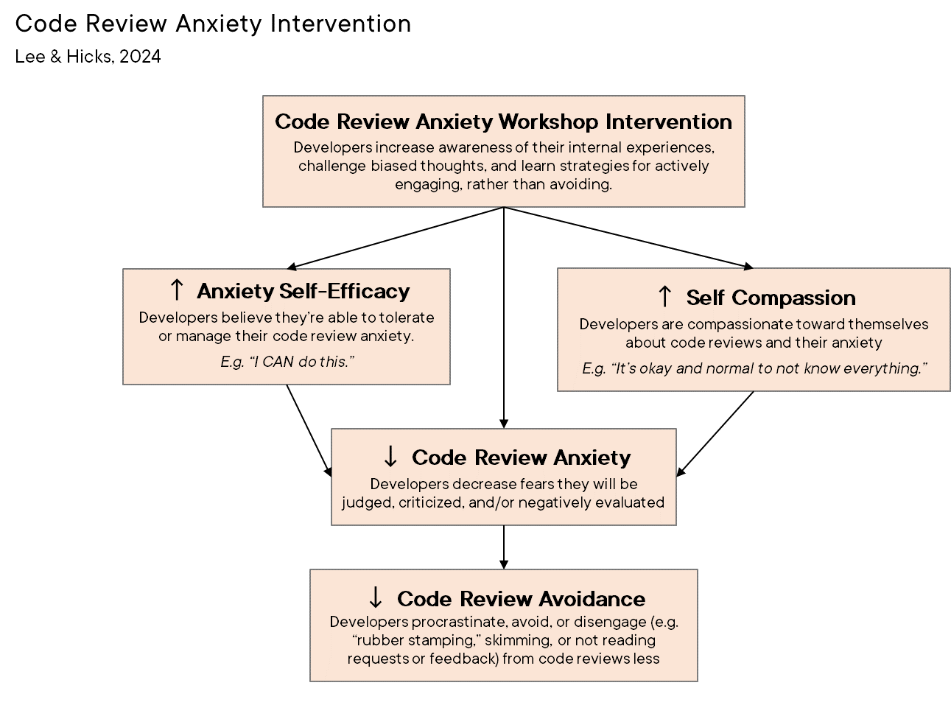
Feeling anxious about giving and receiving code reviews is a common, widely-documented
experience for software developers. This experience is called Code Review Anxiety.
Code Review Anxiety is characterized by a fear of judgment, criticism, and negative
evaluation, and it can lead software developers to engage in a variety of avoidance
behaviors, such as avoiding code reviews, engaging in "rubber stamping", or procrastinating
in opening and reviewing pull requests, among other things.
This avoidance not only increases anxiety in the long term, but also prevents developers,
their teams, and their organizations from accessing the technical and sociocognitive benefits
of effective and efficient code reviews, such as improved code quality and security, learning and knowledge transfer, collaborative and creative problem solving, and trust and community building.
However, software research has not yet empirically examined code review anxiety, and
from this, tractable intervention targets and strategies for mitigating code review anxiety.
As such, in this new research launch, we:
Present an empirical framework for understanding the factors maintaining and exacerbating
Code Review Anxiety,
Develop and empirically test the effectiveness of a Code Review Anxiety Intervention, and
Create the Code Review Anxiety Workbook, a science-backed resource for software practitioners to work through their own code review anxiety.
Our framework shows that developers are more likely to experience code review anxiety when they overestimate the cost of a negative outcome (cost bias) and believe that they are unable to tolerate or manage their anxiety during a code review (anxiety self-efficacy) - all of which leads to developers procrastinating or avoiding code reviews. Importantly, our research also shows that contrary to industry myths, code review anxiety is not just a “junior developer problem.” This means that any developer can experience code review anxiety, making it relevant to any individual, team or organization.

Utilizing a randomized waitlist control trial, we developed and empirically tested the effectiveness of a single-session cognitive-behavioral workshop intervention for Code Review Anxiety. Our results showed that the workshop intervention was highly effective in lessening developers’ code review anxiety. It also increased participants’ beliefs that they have the ability to face and manage their feelings of anxiety, and increased participants’ self-compassion in the face of challenging code review situations. Put simply, our intervention works.

To help you put this research into practice, we also created the Code Review Anxiety Workbook. This workbook takes the code review anxiety intervention that we designed and tested in our empirical research and distills it into a self-paced workbook for software practitioners. It is designed for you to read and work through as many times as you wish and provides you with the tools you need to mitigate and manage your anxiety about giving or receiving code reviews. Go ahead and bookmark this workbook, download the fillable pdf, or print it out. This workbook is truly yours to use. We sincerely hope it doesn't just reduce your anxiety, but also inspires you to be kinder to yourself, empowers you during code reviews, and, above all, shows you that you are not alone.